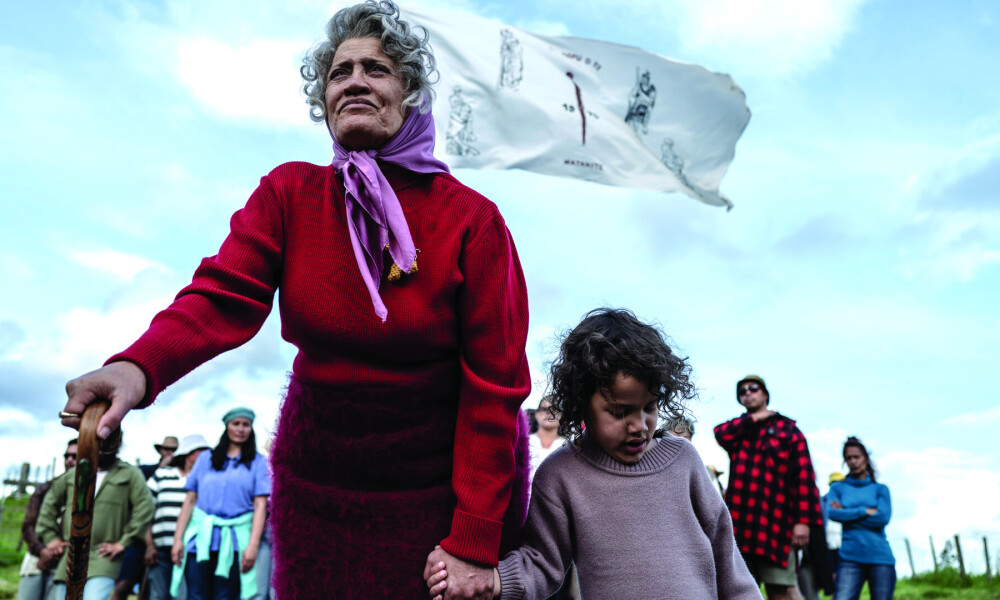Centuries of oppression, tragedy and collective responsibility converge on iconic Māori community leader and activist Dame Whina Cooper in this reverential biopic.
Whina is compellingly unglamourous. Death, displacement, and the struggle for rangatiratanga are interspersed with visions of the everyday; land tribunals, churches, marae, and the misty vistas of Panguru.
The great mountain silhouettes a community long ago hollowed out by colonisation. Whina, the daughter of a respected Kaumātua, emerges as an unlikely hero, uniting her people in pursuit of greater sovereignty, while husbands, sons, and brothers march to war.
Whina is played in triptych: first as a fierce teenager (Tioreore Ngatai-Melbourne), next a world weary rangatira (Miriama McDowell), and finally a beloved kuia (Rena Owen).
McDowell, who shoulders the majority of the film’s runtime, is particularly compelling – wearing the burden of motherhood, womanhood, religion, and leadership in her worry lines and furrowed brow.
Directors James Napier Robertson and Paula Whetu Jones pay great attention to Whina’s personal life: the death of her two young husbands and the intersections between her Māori identity and her Catholicism.
Whina’s eventual rejection of the Church’s condescension toward its Māori congregants is triumphant, setting the stage for her involvement with the Māori Women’s Welfare League and the famous land march to Parliament in 1975.
The march is a soaring crescendo in a film otherwise stayed by the minutiae of everyday activism; making it even more powerful when it arrives.
